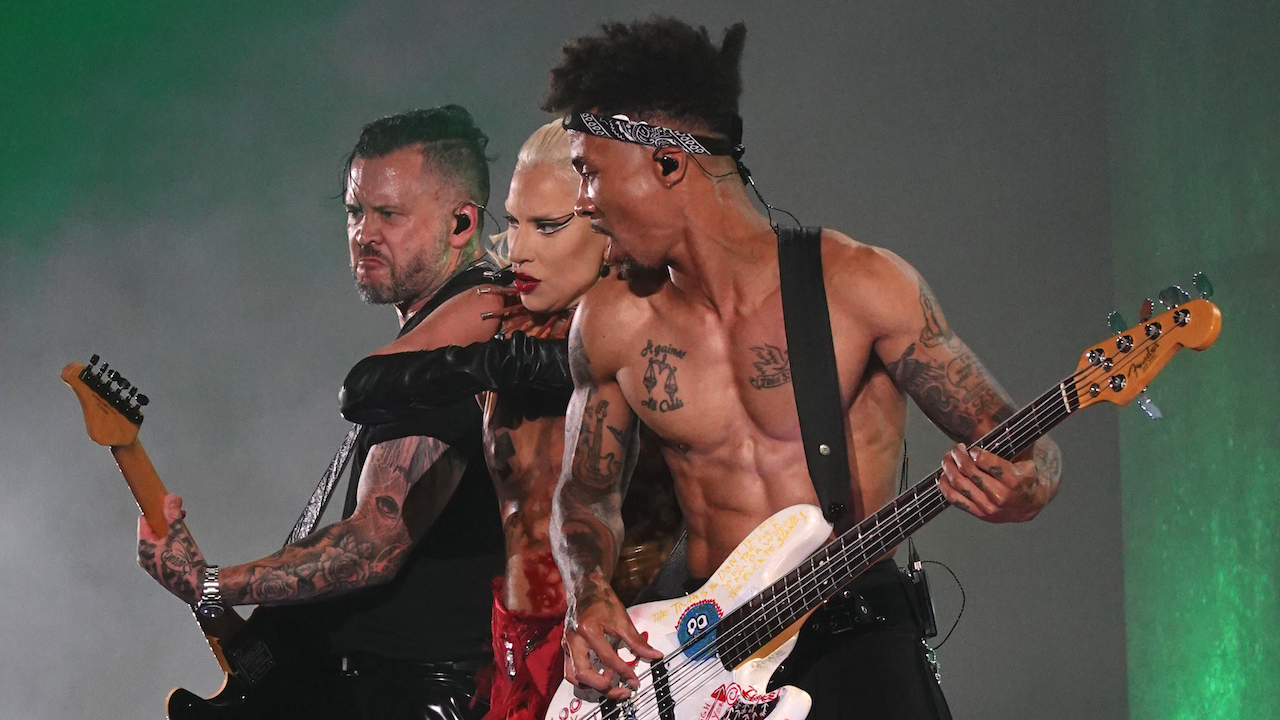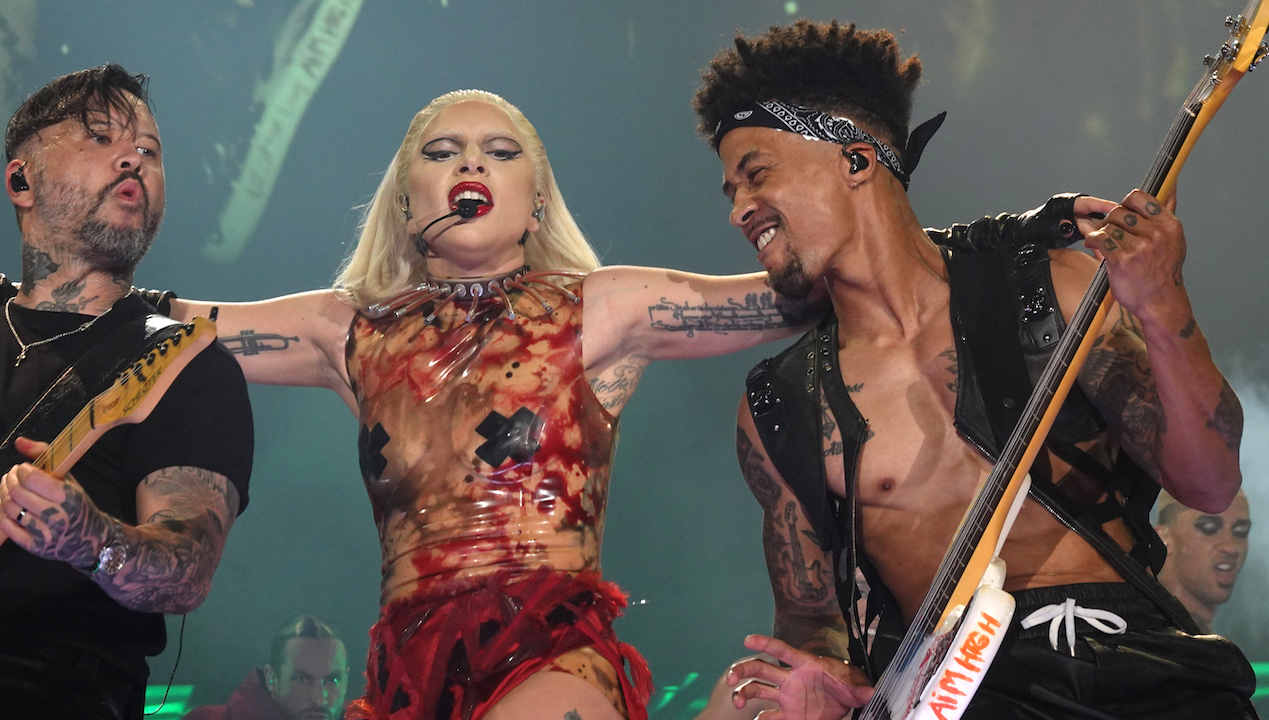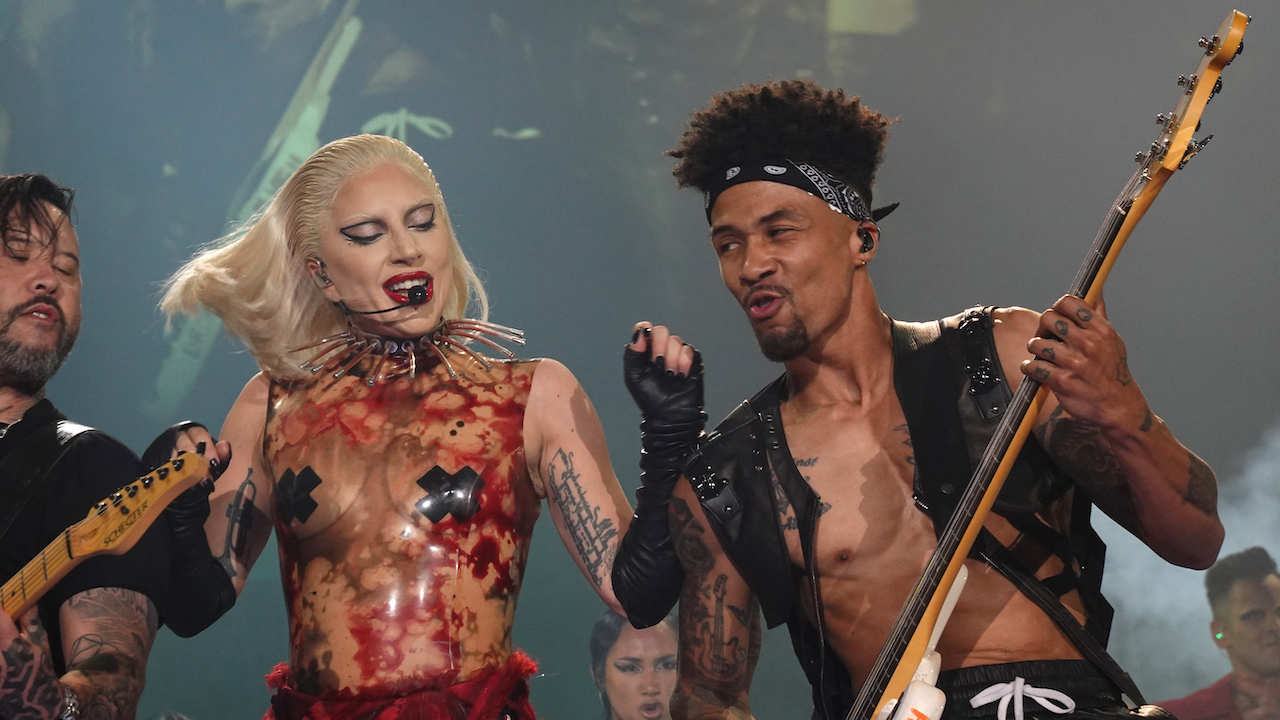Lady Gaga bassist Jonny Goood: “Being a young Black brother and playing dirty with a pick is unique to me...”
Bassist to one of the world’s biggest pop stars, Jonny Goood on coming from nothing and making it big: "I didn't have sh*t!"

That’s not a typo: the Pennsylvania-raised bass player born Jonathan Drummond chose three O’s for his stage name for a reason. He doesn’t have the usual stage and session star biography, having come from grinding poverty as a kid and then sidestepping into a brief career in law enforcement before spending six months living in a car. Nowadays he plays the world’s biggest stadiums with one of the world’s biggest pop stars – but the memories of those tough times linger hard, giving him a ton of wisdom that all aspiring musicians could use.
Jonny, how does it feel to play the big stages with Lady Gaga?
"I have to say, it feels good, like my name – but that little bit of good is mixed in with a lot of gratitude. It’s been a lot of hard work. I actually have ‘Hard Work’ tattooed on me, because this is all a product of my work ethic."
What gear are you using on the Gaga gig?
"My main bass is a customised Fender Jazz with Nordstrand pickups, and then I have a Dunable and an Aluminati with an aluminum neck, plus a couple of backup Fenders. We’re all running Kempers, so there’s no effects pedals because the tones are fully automated. On this stage, we need perfection, and Kemper is a perfect solution. I also play two synths, a Korg MS-2000 and a Moog Voyager."

Are you playing with click tracks?
"Yes, but not the whole set, and not too many bands can say that nowadays at this level. There’s a 30-minute period when Gaga sits at the piano and we join her with live instruments, like they did back in the Sixties. But I will say that we truly do improvise and bring our own thing for most of the show."
Sum up your approach to bass for us.
"I take pride on playing one note at a time, because that one note resonates. Tonight I’m gonna go out there and I’m not going to play no crazy Jaco licks – I’m gonna play one note at a time. It’s going to resonate so much further, because my intention is to shake your whole being. I do a lot of pick downstrokes: in fact I play 90 percent of Gaga’s show with a pick. It sounds so good. Not to make it about race or anything, but being a young Black brother on this stage and not playing gospel music, but playing dirty with a pick, is unique to me."
Why did you pick the stage name Jonny Goood?
"I’ve always prided myself on having a pretty decent character, so I came up with ‘Good’, and I spelled it with three O’s for mind, body and soul. That’s what each O represents. If you strive every day to improve a little bit of body, a little bit of mind, and a little bit of soul, the world opens up in ways that you never imagined."
Get The Pick Newsletter
All the latest guitar news, interviews, lessons, reviews, deals and more, direct to your inbox!
Tell us about your background.
"I grew up in a horrible neighborhood, if I’m honest: Wilkinsburg, Pennsylvania, which has one of the highest crime rates in America. My God, it was tough. Thankfully, me and my brother stayed away from a lot of the problems in that area, because we had good parents. My mom was great, and my dad was a knucklehead at times, but he’s one of the strongest men I know.
"He came from absolutely nothing: he didn’t know his his mom and dad like I know mine. They gave us the best they could, but you know, in the winter we’d be boiling pots of water and taking them upstairs to take a bath in the tub. I never took a shower until I was in college, and when I went to school, everybody was having their Christmases, but we skipped a couple because we couldn’t afford it."
I was all about having integrity, and I stood up for myself, and those are the most important things a musician can bring to the stage.
That’s tough.
"Yes it was, but that’s how I was able to withstand sleeping in my car for six months in LA when I was trying to make it as a musician. I remember being in my car one time, and my dad called me, and I had the worst tooth pain because of course, I couldn’t afford a dentist. He calls me and he’s like, ‘Hey, how you doing?’ and I was about to say ‘I’m good’ but a little piece of my tooth snapped off and I had to spit it out.
"But I was just like, ‘You know what? This is dope as fuck’, because I knew it wasn’t gonna be like this forever. I was like, ‘This is true trials and tribulations right here. I get to endure the lowest lows, but I already know the highest highs are coming’. I was right, because I came from nothing – I didn't have shit! – and now I've got it all."

At one point you were a police officer and a criminal investigator. Do you bring anything from those jobs into being a musician?
"I have to say yes, because when I was a cop, I was diligent, I had integrity, and I showed up on time. I was all about having integrity, and I stood up for myself, and those are the most important things a musician can bring to the stage. As a police officer, I took an oath to say, ‘If you’re in trouble, I’ll lay down my life for you’ and when I did that, it gave me character and a sense of purpose.
"I transferred that same sense of purpose to the stage, because I realised ‘I can save way more people from here than I could as a cop’. In the police, I could only help one or two people at a time, but as a musician, I can say the right thing and help millions of people. Musicians can say, ‘Don’t drink codeine. That shit will kill you. Go to the gym instead’. It’s about having that influence, and knowing what to do with it."
- To find out more about Jonny Goood, head to jonnygooodmusic.com.
Joel McIver was the Editor of Bass Player magazine from 2018 to 2022, having spent six years before that editing Bass Guitar magazine. A journalist with 25 years' experience in the music field, he's also the author of 35 books, a couple of bestsellers among them. He regularly appears on podcasts, radio and TV.
“When I first heard his voice in my headphones, there was that moment of, ‘My God! I’m recording with David Bowie!’” Bassist Tim Lefebvre on the making of David Bowie's Lazarus
“One of the guys said, ‘Joni, there’s this weird bass player in Florida, you’d probably like him’”: How Joni Mitchell formed an unlikely partnership with Jaco Pastorius












